The desert of trust rules丨Three major crimes prove that domestic tennis is in a desert where rules are missing
"In a arena where the rules are ignored, all victories are a monument to barbarism!"
On the question of the current situation of the trust system rules in China, I have successively written "The Most Graceful Legal Open? However, these two articles are more from the "phenomenon" to criticize the "chaos" of some sports phenomena in China, but they do not involve more "the essence of trust rules", or "the core of trust rules", so we decided to write another article on this topic.
Before starting this article, we would like to talk about such a question, that is: what is the public opinion environment of the current "tennis culture" in China?
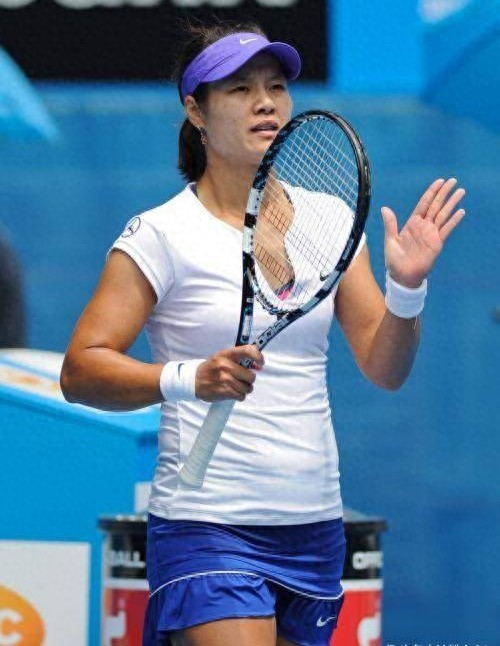
I think many people's first reaction is "poor", but where is the difference? For a long time, the training mechanism of Chinese athletes has been to win gold medals in the Olympic Games to win glory for the country, so it has gradually formed a kind of "hero worship" for individual athletes to equate patriotism with "fan circle thinking"; The second point is the "theory of victory and defeat", since ancient China has been saying that "the king will win and lose", so it seems not surprising that there is such a concept. However, in the real world of sports, we should all understand: competition second, friendship first, sometimes, "the best is the king", but obviously, in China's public opinion environment, such thinking does not hold. For a long time, the public opinion environment of "what is right if you win, everything is wrong if you lose" has surrounded athletes, so most athletes can only turn off their mobile phones and stay away, but even so, it is still difficult to escape the overwhelming online violence and online controversy brought about by losing.
I say this because such a "cultural environment" itself is already doomed to the "execution stage" of certain cultures from the beginning, because people don't care at all about the so-called discussions about morality, about respect, but only about winning and losing, and about champions.
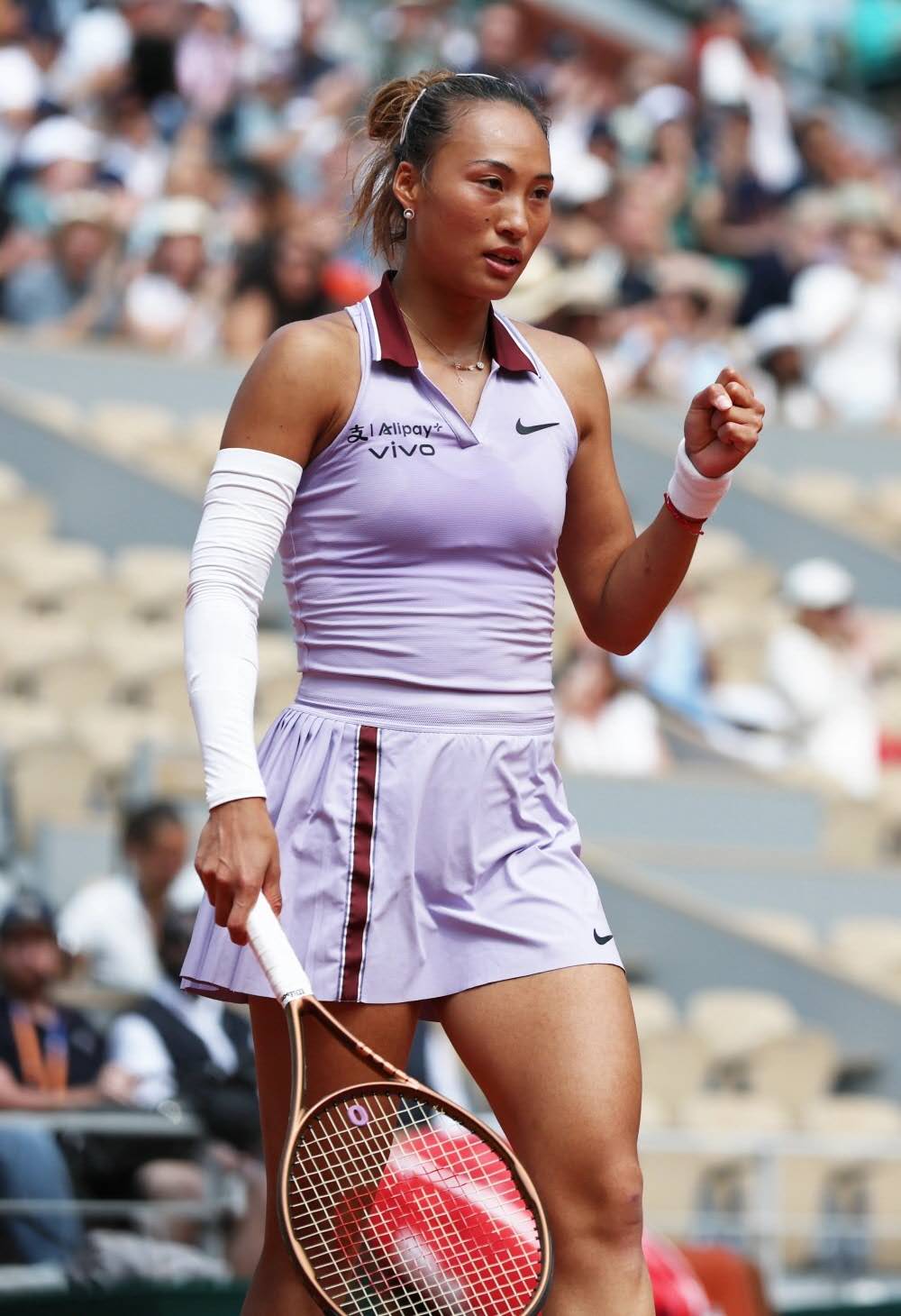
Of course, when it comes to this, many people must ask: But what do you say have to do with the "trust system"? Obviously, the trust system, as a unique rule of tennis, is the most important point for the healthy development of tennis culture in the process of dissemination, but "the spread of rules also needs soil", with soil can sprout, and if what awaits it at the beginning is people's indifference and disdain, then any statement about it will only become extremely powerless. The spread of culture needs a good cultural environment, and a good cultural environment requires everyone's efforts, only more people are willing to understand the "connotation of rules" from the bottom of their hearts, in order to let the chaos stop in the hearts of the people, so that everything returns to Qingning.
Friendly Reminder:This article is very long and will be divided into three parts: the first part is to reply to some messages, the second part is to explore the current situation of the domestic trust system, through three aspects, namely the lack of rule text, the lack of cultural system and the athlete training model, to argue that China is a desert of trust rules, and the third part is an excerpt of the connotation of some trust rules in the United States Tennis Association rulebook and some core rules.
Part I: Responding to some of the readers' questions
For the sake of space, some of the comments may only be excerpted from the core points
Question 1: "It's still the same set of thinking that worships foreign countries, and does not find the reason in the long history, but only looks at the short-term superficial phenomena of the past century." Culture is a heritage, but it is also a product of peacetime! Some netizens commented, "It's 2025, and there are still people talking about reflection culture." Is the moon that round abroad? Let the Chinese people reflect at every turn. ”
A: I think it seems that when we come across something that is slightly "critical", many people will automatically think that this is the so-called "national reflection", and many people will jump out and say that this is a typical "admiration for foreigners"! I think, very rationally, we are relatively backward as far as tennis is concerned, and as we all know, tennis is a white sport that has been dominated by Europeans for a long time, not only because of their physical fitness and athlete development mechanism, but also because the "freedom" in their culture has to do with the internal discipline of the industry. This is what we need to learn, talking about the spread of tennis culture in China, just as we look at the two sides of the same thing, we can't just pursue one aspect, and ignore the influence of the other. I believe that the Chinese people are no longer in the era of not having enough to eat, and the discussion of cultural issues is by no means based on the so-called premise of eating and drinking, culture needs to be "conscious", and it is more necessary to build a harmonious environment that can allow culture to spread, which requires every "tennis person" to pay attention to this issue, which is not a so-called national problem, but a simple stage problem of sports communication.
Question 2: "I don't think you should speak so badly about your country, and don't say so well about your country." …… Can you not talk about how bad the country is at every turn, I have always felt that this has nothing to do with nationality, but with who it is. ”
A: First of all, I think this reader must have read my article, but she certainly didn't read the core idea of my article. According to her, she believes that this "chaos of trust is universal and there are no geographical differences". But obviously, the problem I discussed is that, compared with foreign countries, due to the lack of a complete and mature competition system and corresponding punishment mechanism, many players cheat in the cracks of the rules. Therefore, I put forward a point of view: I think this is a kind of "cultural loss" in the process of spreading tennis culture in China, and it is also a kind of lack and loss of sportsmanship. Therefore, this reader's point of view is only partial, I admit that there are some foreign countries that have some chaos caused by the rules of the trust system, but because of the publicity of the rules of the trust system in its competition system, as well as the ability to file players, it also has a large degree of "system control", which is the focus of my emphasis, and I also hope that the country can establish the control and punishment of the trust system chaos in some low-level professional events and some youth events as soon as possible, so that the domestic tennis ecology can develop healthily.
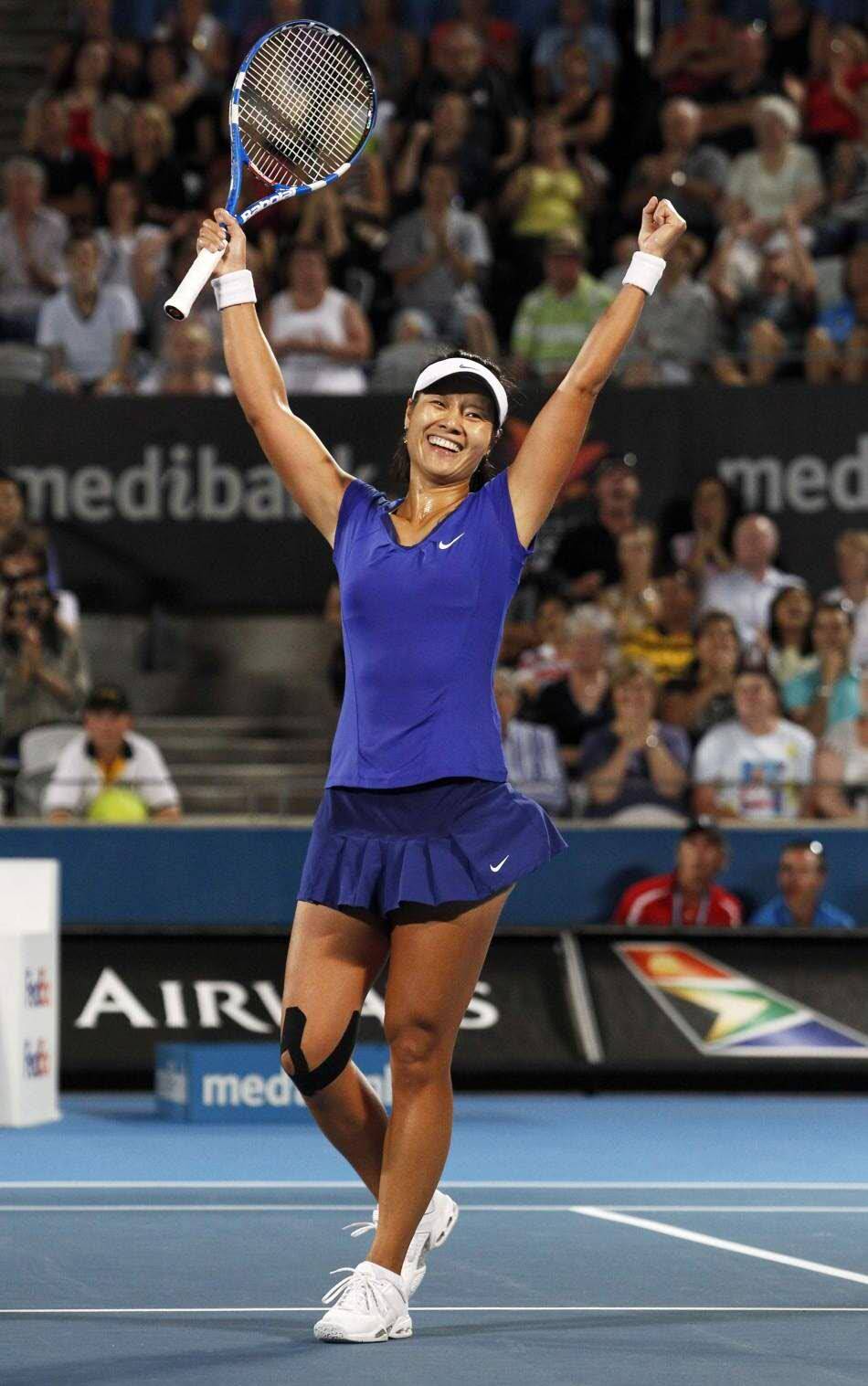
Question 3: "The rules set by Westerners themselves, Westerners themselves, including players, spectators and even organizers, cannot fully do it, counting on the Chinese to do it, but ignoring the behavior of the West!" ”
Answer: Compared with last year's several articles on the rules of the trust system, I re-mentioned this issue from the "spirit of sportsmanship", and the spirit of sportsmanship has always been inseparable from the rules of the trust system, and the respect for the perfect rules of the trust system needs to rely on the humanistic quality and sportsmanship of the players to achieve, and the realization of the ideal of the trust system is also an interpretation and encouragement of the spirit of sportsmanship. When it comes to sportsmanship, I have never said that foreign countries are good, but I only use the presentation of the sportsmanship of Gauff, Alcaraz and Sinner as an introduction to explore the reason behind the chaos of the rules of the domestic trust system - the loss of culture. Therefore, this reader is obviously a bit of a "partial generalization", and even adds a lot of self-conjecture, because the ultimate goal of the article is to call for domestic tennis culture to pay attention to, and to be able to carry out wider publicity and popularization of the rules that break the trust system, rather than just staying at the so-called perfect display of the sportsmanship of several players on the court, so as to deeply compare domestic and foreign, which is not the case at all.
Question 4: "The educational significance of the trust system to young people is first of all to allow themselves to suffer losses, and secondly, their trust system may be exchanged for the other party's reliance on the ball and intensification, and secondly, when they perceive that the other party deliberately relies on the ball, can they stick to their original intentions." Doing bad things in order to win really doesn't really outweigh the losses, it depends on the educational philosophy of parents and coaches. It is really important for youth tennis not to judge heroes by winning or losing, and those who are righteous will only follow the people who are on the waves. ”
A: I very much agree with what this reader said, the so-called "self-umpiring" / The honor system is called "self-esteem" / The honor system in English, so the connotation of the trust system itself is "moral self-discipline", not "moral otherness". The U.S. Tennis Association's Athletic Rules Manual clearly states that "the self-referee system requires players to be responsible for every penalty on their court and to make fair decisions when they are not in their possession." This is an important sign that distinguishes tennis from other sports. The implication is threefold: first, players only have the right to judge the ball in their own field, but not the opponent's ball; Second, players should dare to make "altruistic" decisions when they are not good for themselves; Third, the rule of trust system is an important symbol that distinguishes tennis from other sports, which also reveals the reason why tennis is an aristocratic sport and a gentleman's sport, which requires players to have aristocratic cultivation and gentlemanly demeanor, otherwise tennis itself will not be established.
In addition, the handbook also states that "the tennis court is a field for personality education, and the trust system is a natural environment for training characters such as honesty, self-discipline, respect, and responsibility." The fairness and self-denial that children learn in playing is far beyond the meaning of technology itself. In addition, in the United States, the first lesson for children to learn tennis is not how to play tennis, but "the sportsmanship of the trust system", which is why the chaos of the trust system in tennis abroad is much less than that in China. In fact, I would like to say that trust production is of great significance to the spread of tennis for the popularization and sustainability of the game, and in the absence of a referee, linesman or high-cost referee system, trust system is the fundamental dependence on the existence and popularization of amateur tennis, youth tennis, and mass tennis, and it is also an important component of the healthy development of tennis ecology.

Question 5: "Improving the competition system and changing the rules and mechanisms is the most important, the real norm should always be from the rules and systems of reform, the previous article talks about the moral problems caused by the meritocracy, this explanation is to restrain players from the integrity, but also boast of a relatively complete foreign event system." In essence, this logic is contradictory, and the solution to the problem should fundamentally face the development of professionalism and transparency and fairness of the entire industry, rather than shouting for players to supervise each other...... I agree with the author's concerns about the industry, but it is very biased not to blame only the players and China's value system. The development of the industry requires more comprehensive and in-depth thinking, rather than being reduced to a discussion of regional human nature. ”
A: I think from the perspective of "asking questions", I think this reader's comment is definitely "to the point", indeed, the chaos of the trust system is not only caused by the competition system and the sportsmanship of the players, but also the core reason is the domestic athlete training mechanism. For a long time, the "gold medal theory" and the "win-loss theory" have made athletes become "medal-winning machines" and ignore the essence of sports. However, the reform of the sports mechanism is not so simple, nor is it the ability of us ordinary tennis lovers, relatively speaking, I hope that this article can involve more people, everyone can do something, that can greatly change the chaos of the rules of the trust system. If more people can pay attention to and understand it, and at the same time, let more event organizations realize the importance of "rules first", then this has solved a large part of the problem to a certain extent. In addition, I think the so-called "discussion of regional human nature" is rather one-sided. At present, the country is not only facing the problem of separating sports and education, but also the problem of cultural system and the lack of cultural system, and to solve these problems, we can not just "look up at the moon", we also need to "go out", if we just blindly make cars behind closed doors, then how to solve the problem? Don't think of regional confrontation or "admiration for foreigners" as soon as you mention "domestic is not good", a good doctor does not matter where he comes from, and the one who can cure the disease is a good doctor!
Part 2: Chinese tennis is facing a serious "rule desert" and "cultural fault"
Evidence 1: The rules are blank! The trust system is completely dependent on "folk models" and "players' self-understanding" to spread
In recent years, with players such as Zheng Qinwen, Zhang Zhizhen, and Shang Juncheng creating new historical records on the court, Chinese tennis now seems to be ushering in a big climax. However, outside the spotlight, a desert of rules is spreading – log on to the official website of the Chinese Tennis Association and search for "trust rules", and the results page is empty; Looking through the regulations of the China Tennis Tour, there is no mention of the core ethics of tennis.
But at the same time, when we open the "The Code" on the official website of the United States Tennis Association, we find that the full text of the trust system is all clear and accessible, and other countries, such as the Australian Tennis Association's "Friends of Court" guide, also explain in detail the essence and connotation of the player's responsibilities and trust rules, in addition, the New Zealand Tennis Association and the British Tennis Association also have articles on the trust system rules and cases and cases of punishment for disputed balls.
It is hard to believe that today, with the rapid development of Chinese tennis, there will be a collective aphasia of this kind of rules, which also reveals the most fatal flaw in the development of Chinese tennis: "the structural lack of tennis rules and culture".
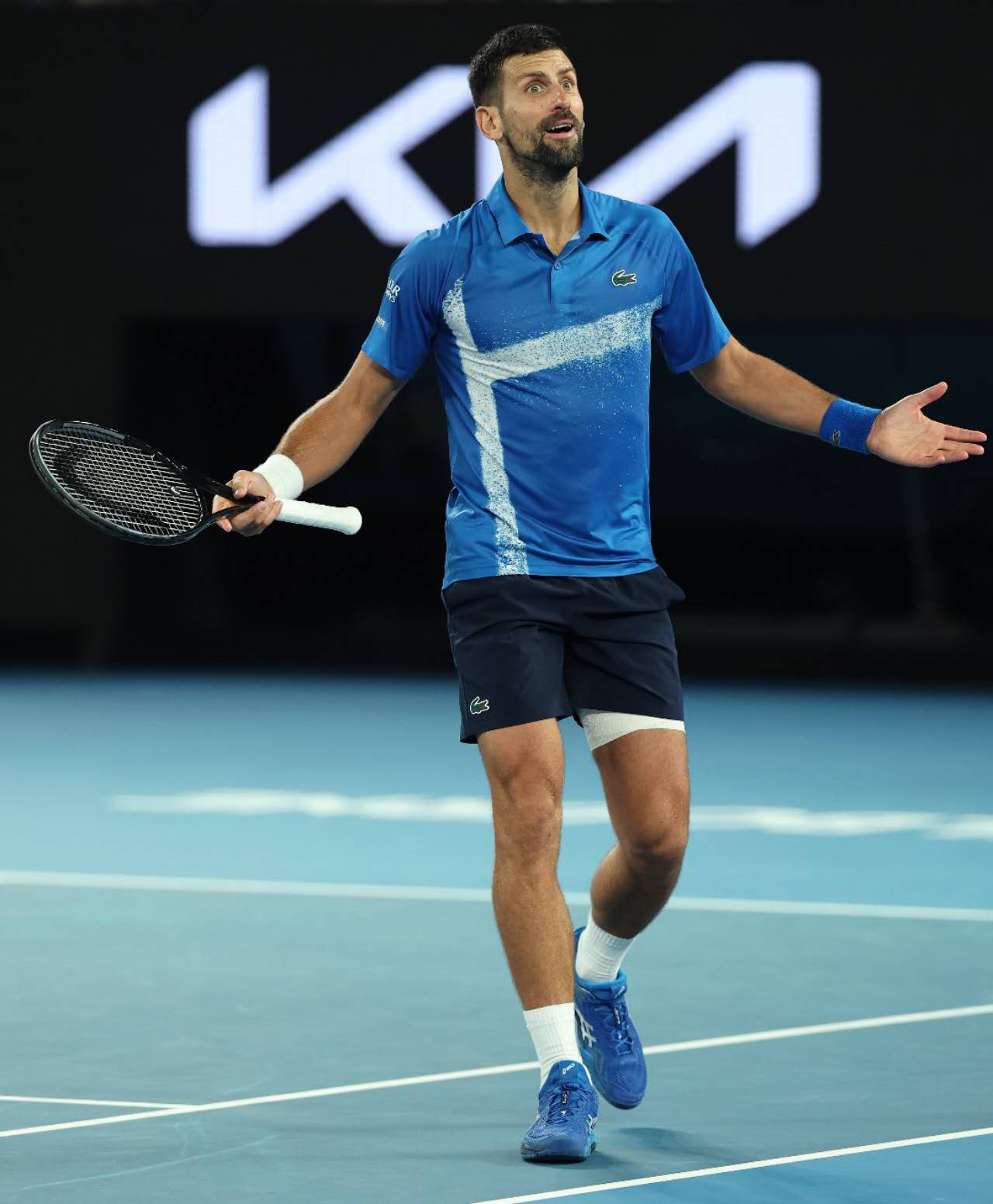
The following is the current status of the texts of the trust system rules at home and abroad:
Announcement of the rules of the official Chinese tennis organization on the trust system: The official website of the Chinese Tennis Association (CTA) (www.imcta.cn) and the official website of the China Tennis Tour (www.ctatour.cn) did not directly release the full text of the unified rules of the trust system. Trust rules rely on unofficial channels: they are disseminated through local associations, tournament manuals, or the tennis community, and there is a lack of a uniform text at the national level.
Situation of the rules of trust of the international official associations:
The official website of the United States (USTA) is clearly released: The official website of the USTA provides the full text of "The Code", clarifying the rules of the trust system (such as the principles of timely reporting, honest correction, and replay of disputes), in addition, the content also specifically refines the clauses such as "delayed call is invalid" and "the opponent has the right to challenge", and the supporting video case analysis.
Both Tennis Australia and New Zealand have dedicated Friends of Court guidelines on their official websites, which cover responsibilities, penalties and ethical requirements, and are promoted as standardized rules and mandatory for amateur competitions.
Summary: The trust system of Chinese amateur tennis relies on non-governmental texts and unofficial communication, and lacks authority, standardization and update mechanisms, which can easily lead to disagreements in the actual implementation of the game.
Improvement direction and suggestions: official integration rules: CTA can refer to international experience, publish the Chinese version of the "Trust System Competition Guide" and incorporate it into the competition regulations; Strengthen training and supervision: embed rule learning modules in the event registration system and require player certification; Establish a blacklist system for "malicious misjudgments"; Analysis of promotion cases: popularize typical dispute cases (such as scientific explanations of misjudgments caused by the "flash lag effect") through the association's official account or event manual.
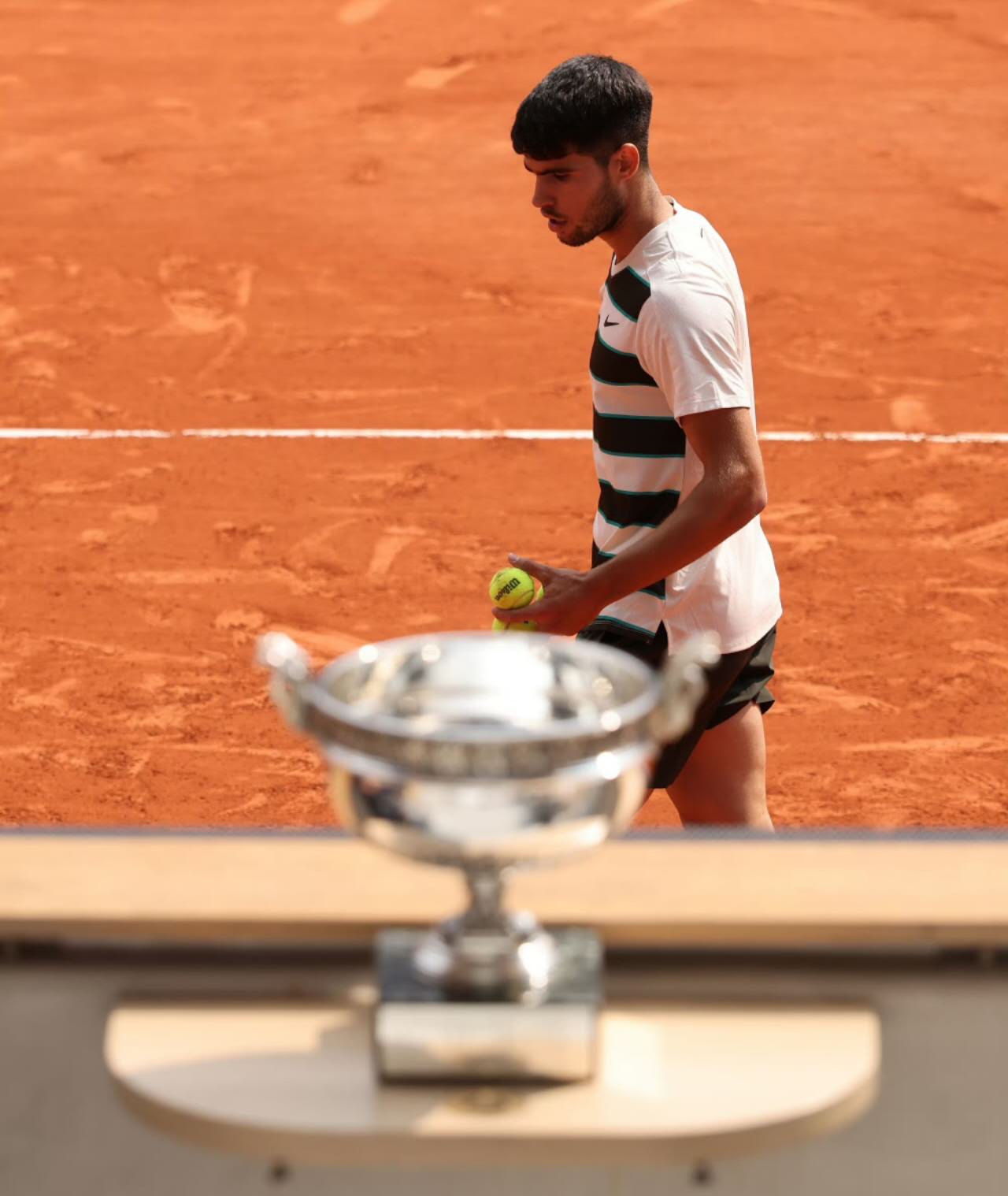
In this regard, a senior fan sighed, "For the amateur trust system, the country has not really formed a common sense of code of conduct and norms, but created." Tennis culture with their own local characteristics (such as replaying every controversial ball, countering violence with violence, etc.). However, in the developed areas of tennis in Europe and the United States, the trust system of amateur tennis is all agreed upon and standardized, and it is all in the official documents and normative manuals. Of course, there will be people everywhere who break the rules, but they will also be spurned by the mainstream, and naturally there will be no long-term market. ”
Evidence 2: Blank system! Supervision Blank! There is still a lack of a complete competition system and punishment mechanism in China
Speaking of the lack of domestic models of trust system rules and the lack of rule education, many people will ask: Isn't it okay for us to copy the foreign trust system rules?
I think this idea seems a bit too simplistic, as the saying goes, "The affairs of the world are not difficult to legislate, but difficult to enforce the law; It is not difficult to listen to words, but it is difficult to do what is said. "It's not difficult to establish rules, but it's hard to cultivate people's awareness of "rules first" and make people stand in awe of the rules, which is the hardest!
In China, because there is no decent rulebook, because there is no training mechanism throughout the youth events, there is not enough organizers and coaches to pay attention to the rules, and there is no punishment for those who violate the rules of the trust system, so the rules are gradually blurred, and gradually become "use the rules and the law, and do not use the clumsy action!" ”
How to make all people who learn tennis in China, especially teenagers, regard the "trust system" as a "compulsory course" that should really be taught, this is a very deep knowledge, and it cannot be achieved simply by copying a set of rules.
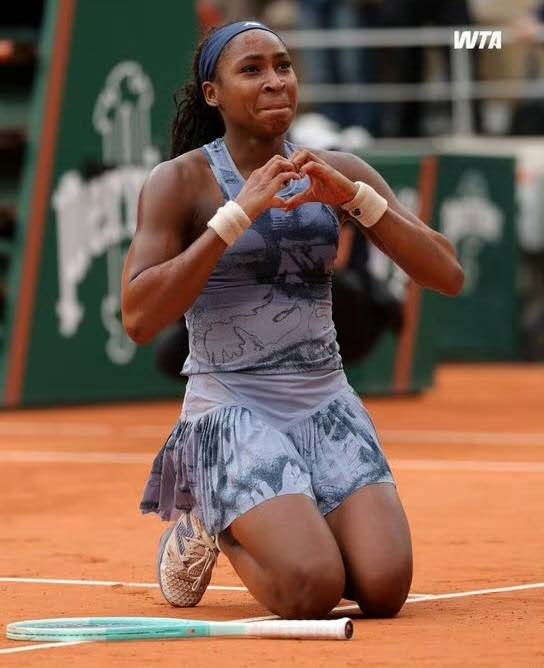
Many people think, "Even abroad, the quality of many people and the abuse of rules by many people are still very common, so why talk about the chaos of tennis at home?" Why do we have to reflect at home? ”
A veteran golfer said, "Many foreign players have been emphasized from an early age on the etiquette of the game, the trust system that has been implemented since the beginning of the youth tournament, and the encouragement and appreciation of the media and the public for "being personable". Therefore, in foreign countries, there can be disputes, but the rules will not be chaotic; Emotions can get out of hand, but culture pulls people back. ”
I think the fundamental problem lies in the fact that China has been indulging in this "chaos of the trust system", not because of how good and perfect it is abroad, but at least because foreign countries have realized the seriousness of this problem and have begun to take measures to rectify it, rather than "lying flat" like this at home.
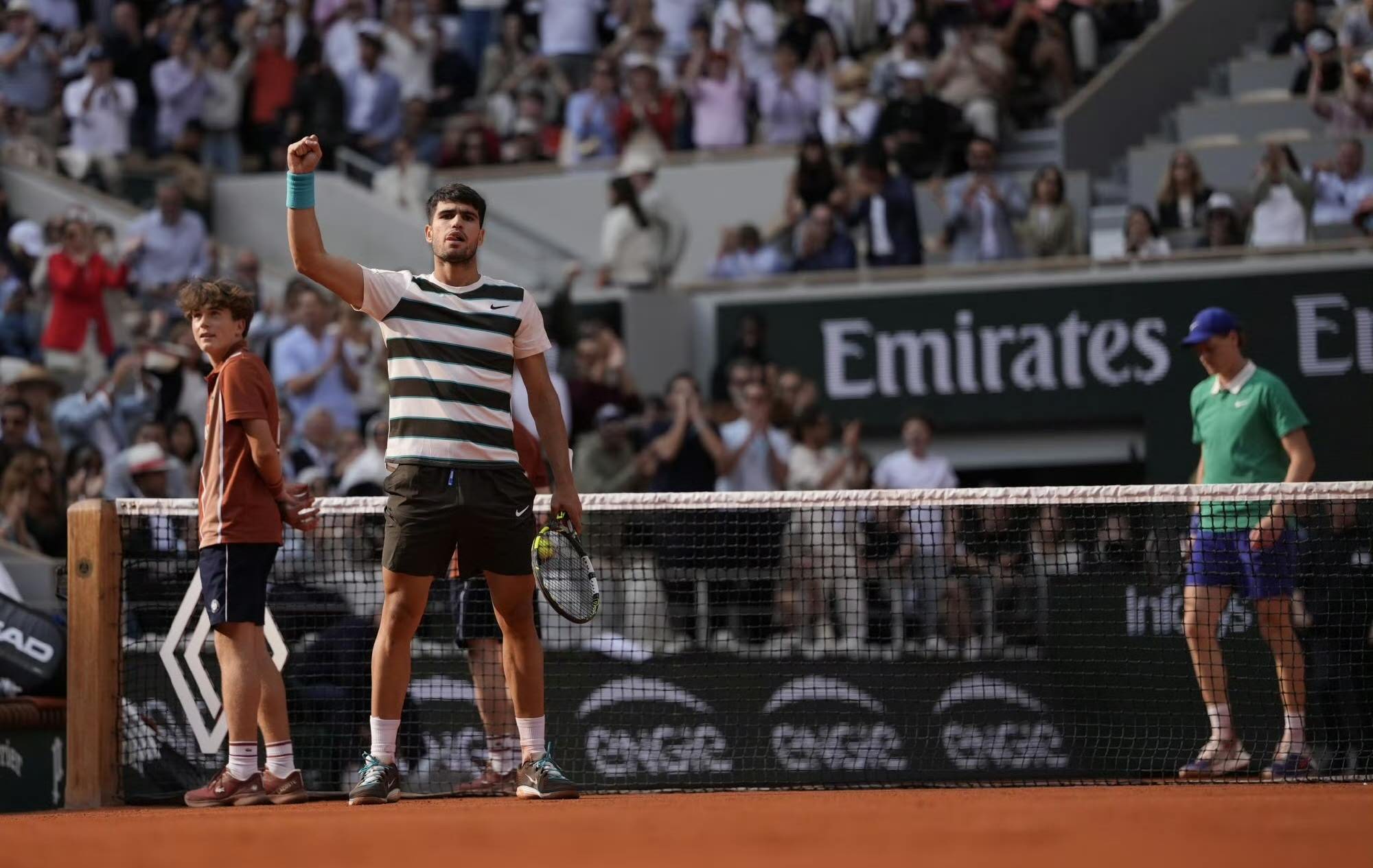
"Trust is never anyone's patent. It's more like a cultural competency to "trust each other by default" – an invisible but powerful consensus. It does not belong to any one country or association, but to everyone who loves tennis, loves fairness, and loves to respect each other. "This is the voice of a tennis person, and it is also our voice, and the discussion of such an issue should not be a territorial issue, but should belong to everyone involved in the sport.
Evidence 3: "Reasonable if the rules allow it"? Without the soil of sportsmanship, how can we cultivate players with gentlemanly demeanor?
More than a decade ago, Li Na's success thrilled the Chinese people, and in a white-dominated sport, the yellow-skinned race finally saw a Grand Slam champion. However, Li Na's success is also a failure, because the thinking she brings to the Chinese people is only a reflection on the training mechanism of domestic athletes, not a reflection on the sports system of domestic athletes.
We say that the environment creates people, and what kind of environment will cultivate what kind of character and virtue. Domestically, the separation of sports and education gives players little opportunity to receive moral and cultural education, and for this reason, in the country, almost all sports are won for the sake of winning, and championships are won for the sake of the championship. In this way of thinking, it seems that any means can be won by any means, but apparently, we have forgotten one thing: "Sports are not only about making people competitive, but also about shaping people's character." ”
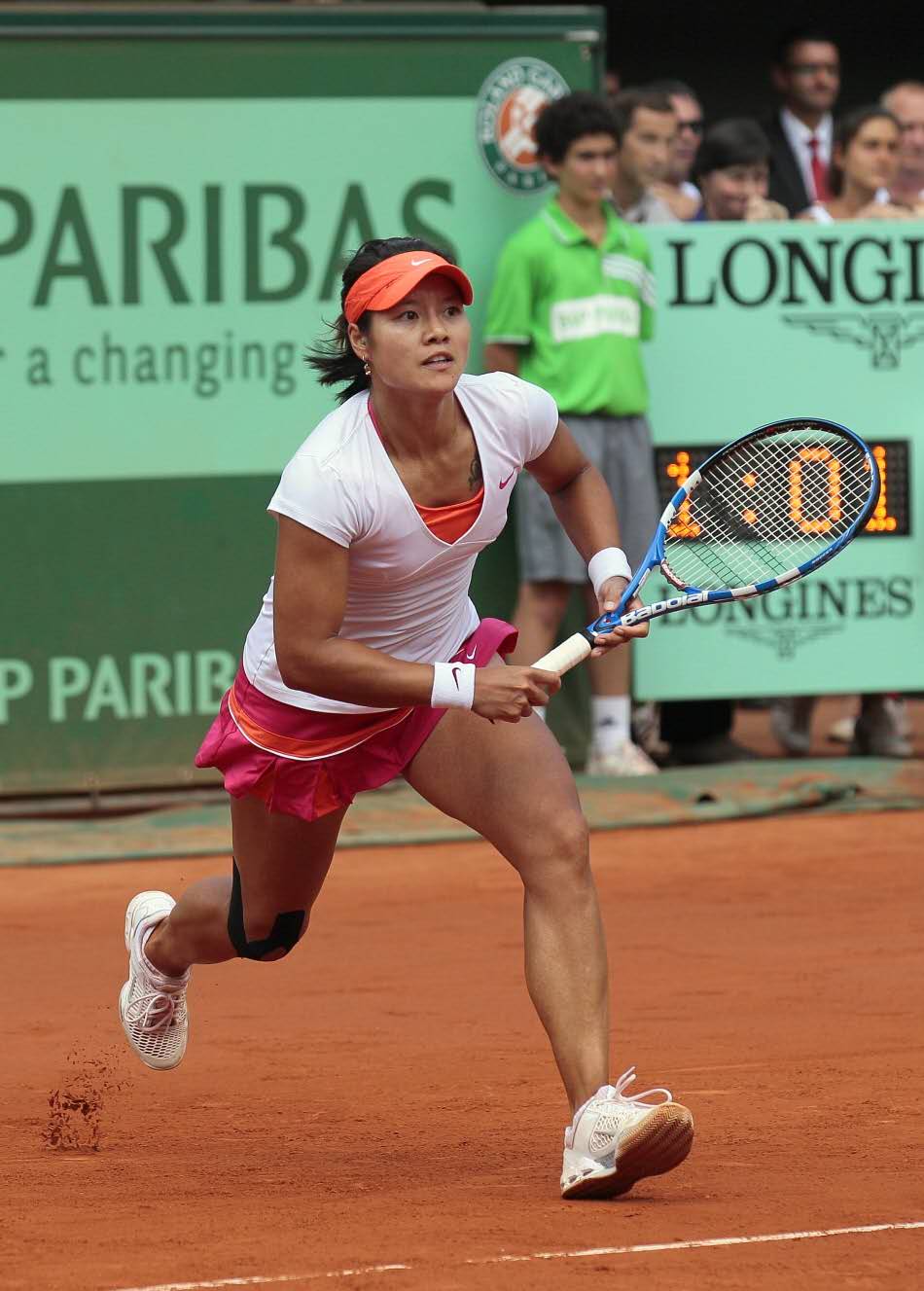
In recent years, with Zheng Qinwen breaking into the Grand Slam women's singles final and achieving unprecedented success as a professional tennis player after Li Na, what kind of impact and thinking has this brought to the Chinese people? The conclusion is equally sad. If Li Na's success is a typical "noble son from a poor family", a history of struggle mixed with personal struggle and rebellion against the state system to gain individual freedom, then Zheng Qinwen's success is undoubtedly "elitist capital transformation"!
That's right, Zheng Qinwen was smashed out with money, and she is also a new era player under the "integration system" in the new era, as the second generation of the body, her success is the envy of everyone. However, the cultivation cost of more than 20 million behind it may discourage 99% of families, and more importantly, there are many "green lights under the power structure", so all this is indeed enviable, but also emotional.
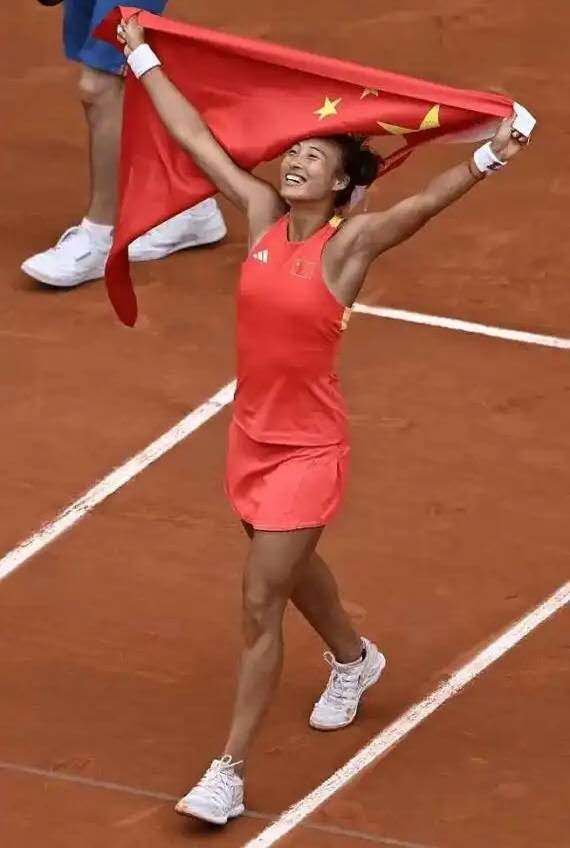
Therefore, speaking of which, what I want to express is: under the current athlete training system in China, there is no restraint on the cultivation of athletes' character and morality, so how can we ask for this kind of "altruistic" demeanor to be popularized?
Part 3: The core and specific rules of the tennis trust system
In the first part of the previous part, we have emphasized the connotation of "trust system", whether it is Self-Umpiring / The Honor System, or the "trust system" translated in China, its core is to dare to make judgments that are unfavorable to oneself.
Achieving this belief requires players to be responsible for every penalty on their own court, and to make fair decisions when they are not in their favor, which is an important mark that distinguishes tennis from other sports. As emphasized in the USAA Handbook, "Trust is a natural environment for training players in their character roles such as honesty, self-discipline, respect, and responsibility." Children learn fairness and self-denial in playing, which is far beyond the meaning of technology itself. ”

Based on the 47 rules of trust issued by the United States Tennis Association, I will focus on a few controversial issues that often occur on the court in real life!
First of all, according to the rules, the score scored in good faith is valid
According to the rules, if a player in the game finds out that they are standing on the wrong side after serving and hitting a point in the wrong court, then according to the rules, the point is still valid and cannot be replayed! In the same case, if a point in a doubles match is realized at the end of a point in a doubles match, the point is still valid and the full score should be scored according to the rules.
Secondly, players can only be responsible for the decisions of their own field and have no right to interfere with the decisions of others
Under the trust rule, each player is responsible for judging all incoming balls that fall on or towards their own field, so this does not mean that players are free to challenge the decision of another player's field or even ask for a replay.
Furthermore, in the confidence rule, the principle of "doubtful ball in the opponent's favor" should be vigorously fought to make a decision
In a game without a referee, if the player is not sure whether the ball is in bounds, the penalty shall be made in the "favour of the opponent", while in doubles, if one partner gives a different decision, or if one of the players says "did not see clearly", the penalty shall also be awarded according to this rule.
In addition, players should take the initiative to determine the out-of-bounds ball they have hit
With the exception of the "first serve", if the player clearly sees that the ball he has hit is out of bounds, he or she should take the initiative to make a out of bounds decision, even if the opponent does not contest it. The primary goal of the ball is accuracy, and all players are expected to work together to do so.
However, the rules also make it clear that the serving team should not stop returning the ball on the first serve, regardless of whether they are convinced that their serve is out of bounds, because the receiving side may make a favorable decision out of an "altruistic decision", so if the serving team stops returning the ball, it means that the point is lost.
In addition, the decision to be out of bounds must be clearly made by sound or gesture and not by any other means, and the player must not ask the crowd on the sidelines to assist in the award. Spectators do not have the right to interfere in the game and cannot be the basis for any judgment.
Secondly, about the penalty for foot error.
With regard to foot errors, in principle, players should not make foot errors out of "self-discipline", as this is a violation of Article 18 of the International Tennis Tennis Rules. However, according to the rules, if the receiving side is aware of the player's frequent foot errors, it can issue a warning or ask the referee to come in to assist in the decision. In addition, the recipient or his partner may not declare a mistake unless reasonable efforts have been made (e.g., warning the sender, attempting to request referee intervention) and the error is so obvious that it can be clearly identified from the recipient.
Penalty for delay in the player's serve: If the serving side causes the delay, only one serve will be retained; If the delay is caused by the receiving side or outside interference, the serving side gets two new serves. In addition, the time taken to pick up the ball is usually not sufficient to constitute a "break", so two tees should not be automatically given unless the process does drag on time. In addition, the receiving team has the right to determine whether the delay is long enough to allow the serving side to regain two serves.
It is also important to mention here that there are rules and requirements regarding the failure of clothing and equipment.
As provided in the Rules, if a player's clothing or equipment (excluding rackets) is damaged "beyond his or her control" and it is clear that it has been damaged, the game may be reasonably suspended and the player may leave the field at the end of the point to change or deal with the problem. However, if the racket or string is damaged, the player can leave the court to replace the racket, but if the delay is delayed, it may be punished according to the "penalty system".

Finally, we hope that everyone can understand the meaning of trust, that is, to dare to make altruistic judgments! As stated in the rules description in the Australian Tournament Management Manual: If in doubt, the player must give the benefit of any doubt to his/her opponent, in particular regarding line calls. Translation: If in doubt, the player must give the opponent the benefit of any doubt, especially with regard to line decisions.(Source: Tennis Home Author: Lu Xiaotian)
Author's Statement:Thank you to all the people at home and abroad who accompanied me to complete this article, especially many domestic tennis people for their encouragement and opinions, and finally, thank you also for the tennis home platform, strive to be the first to go forward, and wish the tennis home better and better on behalf of everyone!







 Links
Links
 Contact
Contact
 App
App


